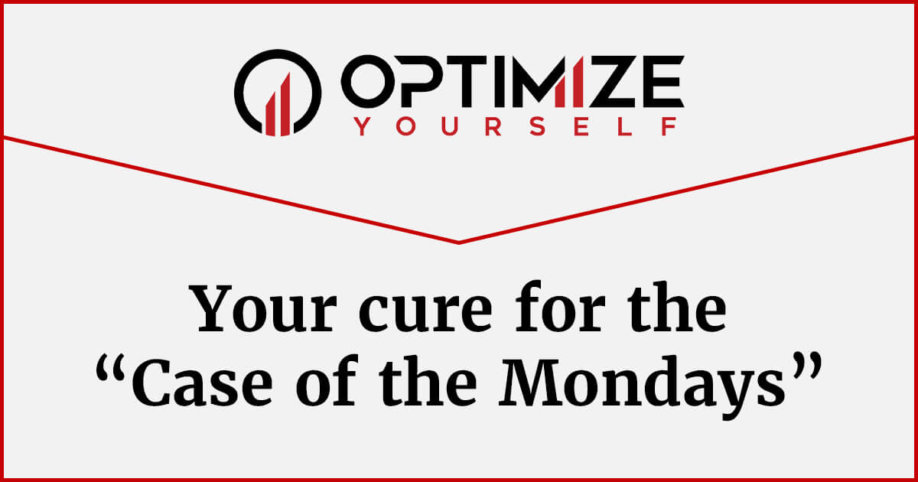Interested in reading more newsletters like today’s? Click here for the full newsletter archive
If you have an internet connection and you spend any amount of time whatsoever on social media or news sites, you’ve most likely come across the “new” viral sensation sweeping the web called “Quiet quitting.”
In a nutshell, “quiet quitting” is a philosophy of approaching your work (largely adopted by the younger generation) whereby you essentially do what your job requires – no more, no less. You work the number of hours per your contract, you meet your obligations, you do what you’re told, and you meet the status quo just enough to not get fired. To be clear, there’s nothing new about this idea at all. Anyone who’s worked in a union knows this has been called “working to your contract” for decades.
Hell, one of my favorite movies of all time Office Space is an ode to the concept of “quiet quitting.”
“So, it looks like you’ve been missing a lot of work lately, Peter.”
“I wouldn’t exactly say I’ve been missing it, Bob.” 😉
Much of the online response to “quiet quitting” has been positive in that it inspires us to pursue other interests beyond our jobs and define ourselves not just by what we do. It means we no longer allow ourselves to be exploited or taken advantage of. It means that we’re confidently setting boundaries in our lives. And it’s a path to avoiding inevitable burnout.
Clearly I support all of the above!
But there are also those responding who interpret “quiet quitting” as being lazy, irresponsible, apathetic, or even downright entitled. The assumption being, “If I show up and do what I’m told, I deserve to move forwards.” And to be honest, I also agree with a lot of this interpretation as well.
What I have no intention of debating today is whether or not “quiet quitting” is a good thing or bad thing. I think there’s far too much nuance to this concept to consider it black or white. What I instead choose to discuss is the much larger problem this idea represents and the giant red flags it raises.
Have you considered “quiet quitting” at a job before?
If you have, I don’t believe it necessarily means that you are lazy, apathetic, or entitled. Conversely, I also don’t think it’s simply a sign of you confidently setting boundaries and not allowing yourself to be exploited.
To be honest, I think as soon as you even consider the idea of “quiet quitting,” it most likely means at least one of the following:
- You are no longer passionate about the work you do
- You don’t feel creatively connected to the end product you help create
- You work in a toxic environment
- You aren’t being valued (or respected)
- You don’t like the people you work with
I’m not saying all of the above are true simultaneously, but if 1 or 2 are jumping off the page, I can see why “quiet quitting” could be an appealing solution. You don’t rock the boat, you still have money going in the bank, and it beats hustling on the unemployment line. But I can’t imagine a worse way to spend the majority of my waking hours than just doing the bare minimum to survive.
“Quiet quitting” sounds like my own personal hell.
I’ve worked countless jobs in my lifetime that meet at least one (if not all 5) of the criteria above, but never once did that inspire me to simply do the bare minimum. Instead working at less-than-desirable jobs motivated me to take the right actions to ensure they were just jobs as opposed to becoming my career.
The last thing I would ever want anyone to think of me is I’m the kind of person who “does the bare minimum.” I thrive on creative challenges and absolutely LOVE what I do! I’m happy to give everything I’ve got…as long as it no longer means sacrificing my health, relationships, or my sanity in the process. There is a line I’m willing to draw…but that line is far beyond the bare minimum.
If you want to build a successful career, the higher you climb the ladder the more important your referral network becomes. Which means that your reputation is EVERY. THING.
I’ve always considered myself that person willing to go above and beyond to ensure the work we are creating together is the best it can possibly be…to a point. The point at which I’m no longer willing to go above and beyond is when I’m taken advantage of, when people try to exploit my time & expertise, or as soon as I’m shown disrespect. If you don’t value me, I won’t provide value in return. It’s pretty simple.
But even when this happens (and I’ve worked in Hollywood for 20+ years, so this happens all the time), I don’t stop showing up or switch into automation mode doing just the bare minimum to not get replaced. I still do great work. But simultaneously I’m also working on my exit plan to ensure I always have options in the future.
It’s been a long time since I’ve been at any job where I would have considered what has now been coined “quiet quitting” because I have made it a point to surround myself with people I love working with.
Like many do mid-career, I came to the realization at a certain point that WHO I work with is more important than WHAT I’m working on. It used to be about chasing the next big credit. Now it’s about surrounding myself with people I like and respect.
Be well.
Zack Arnold
Creator, Optimize Yourself

